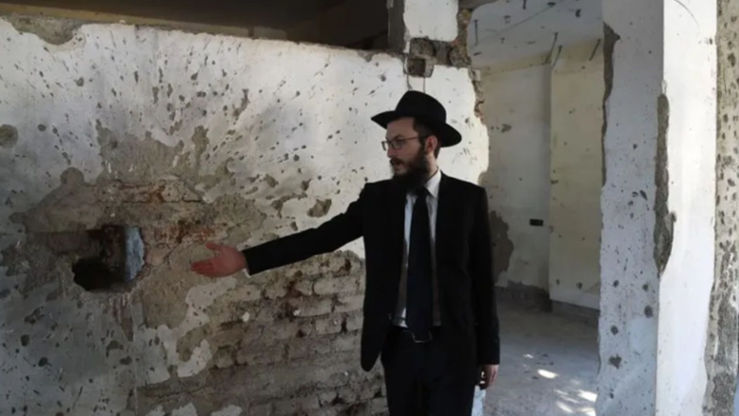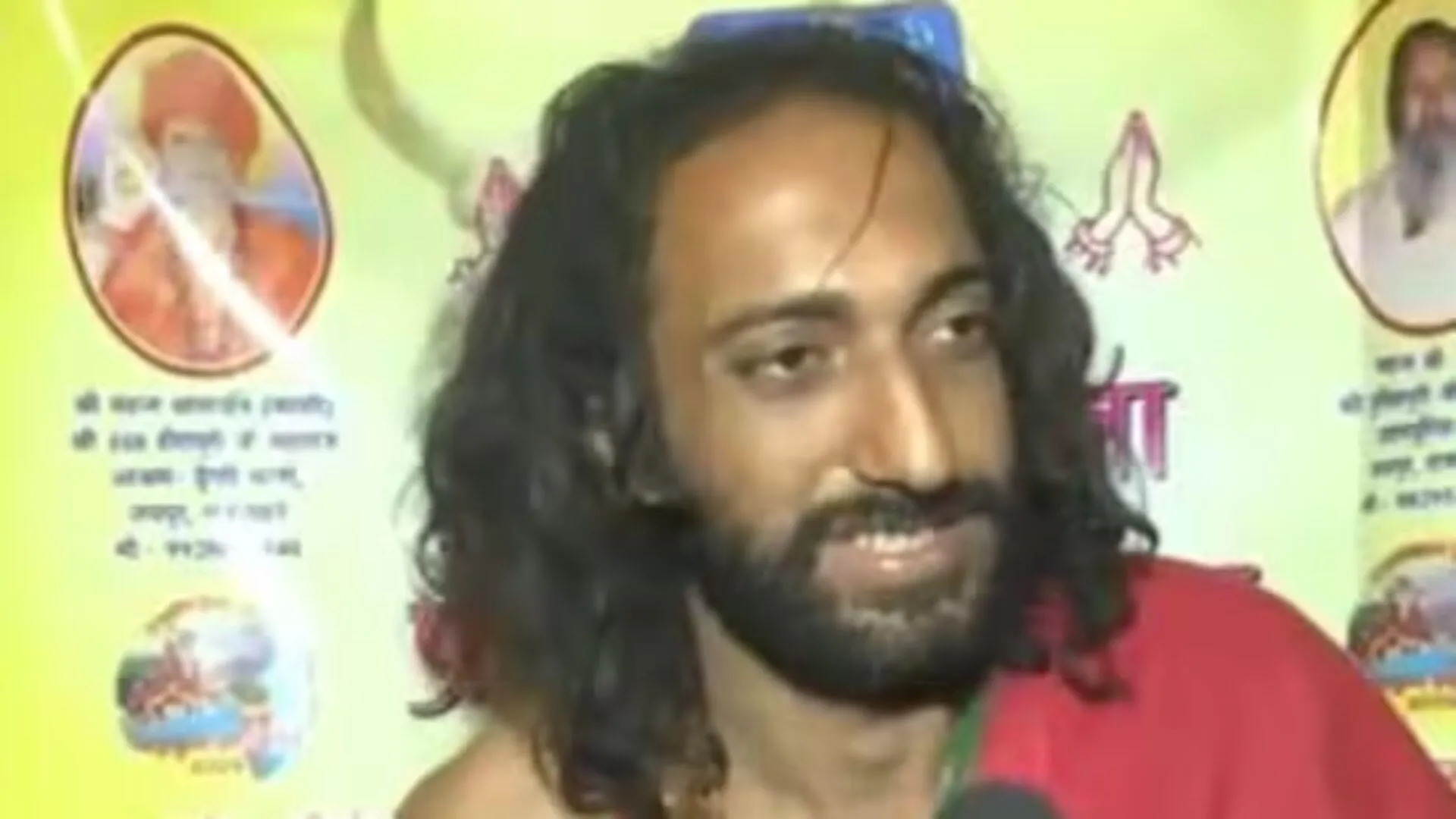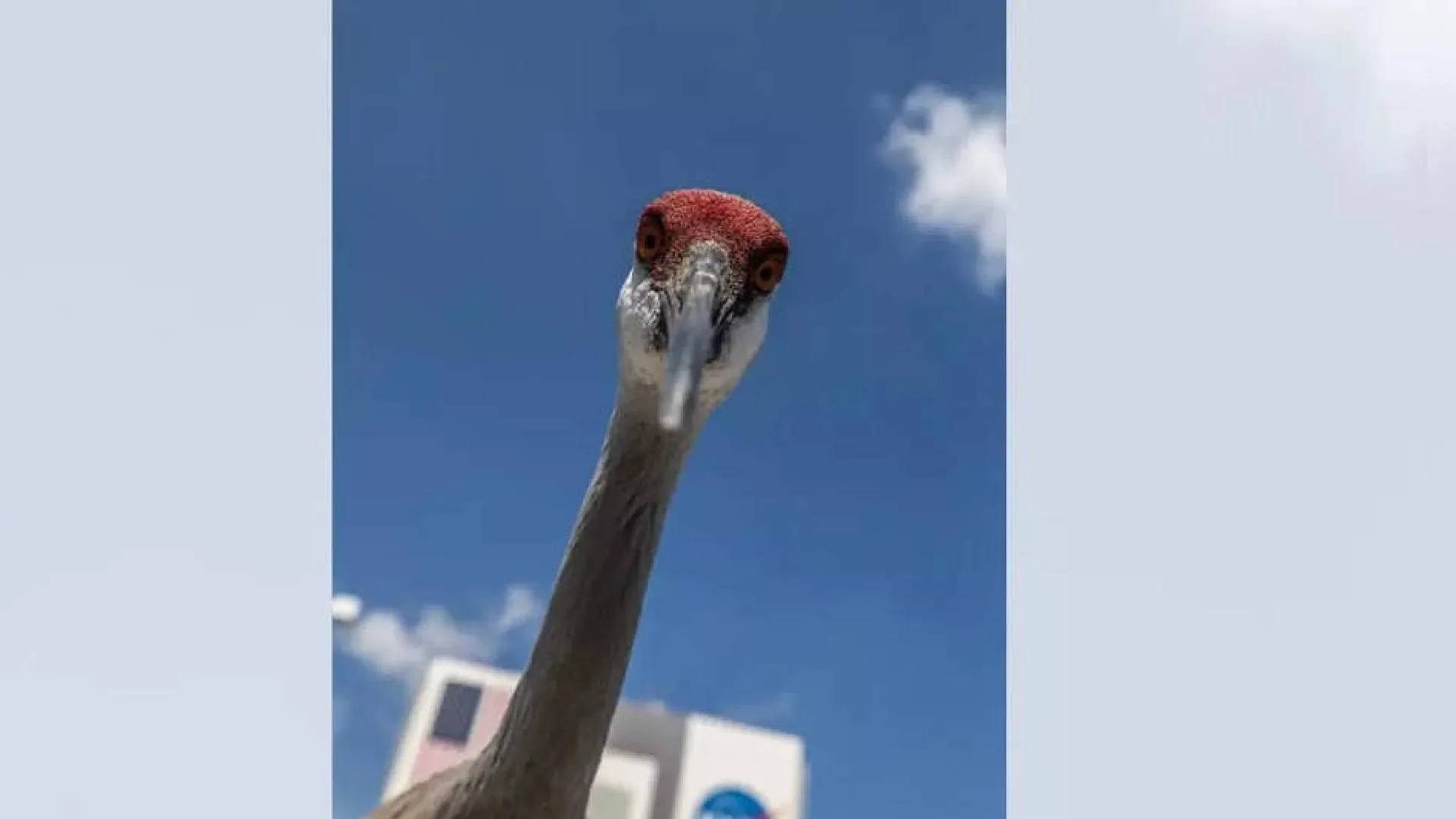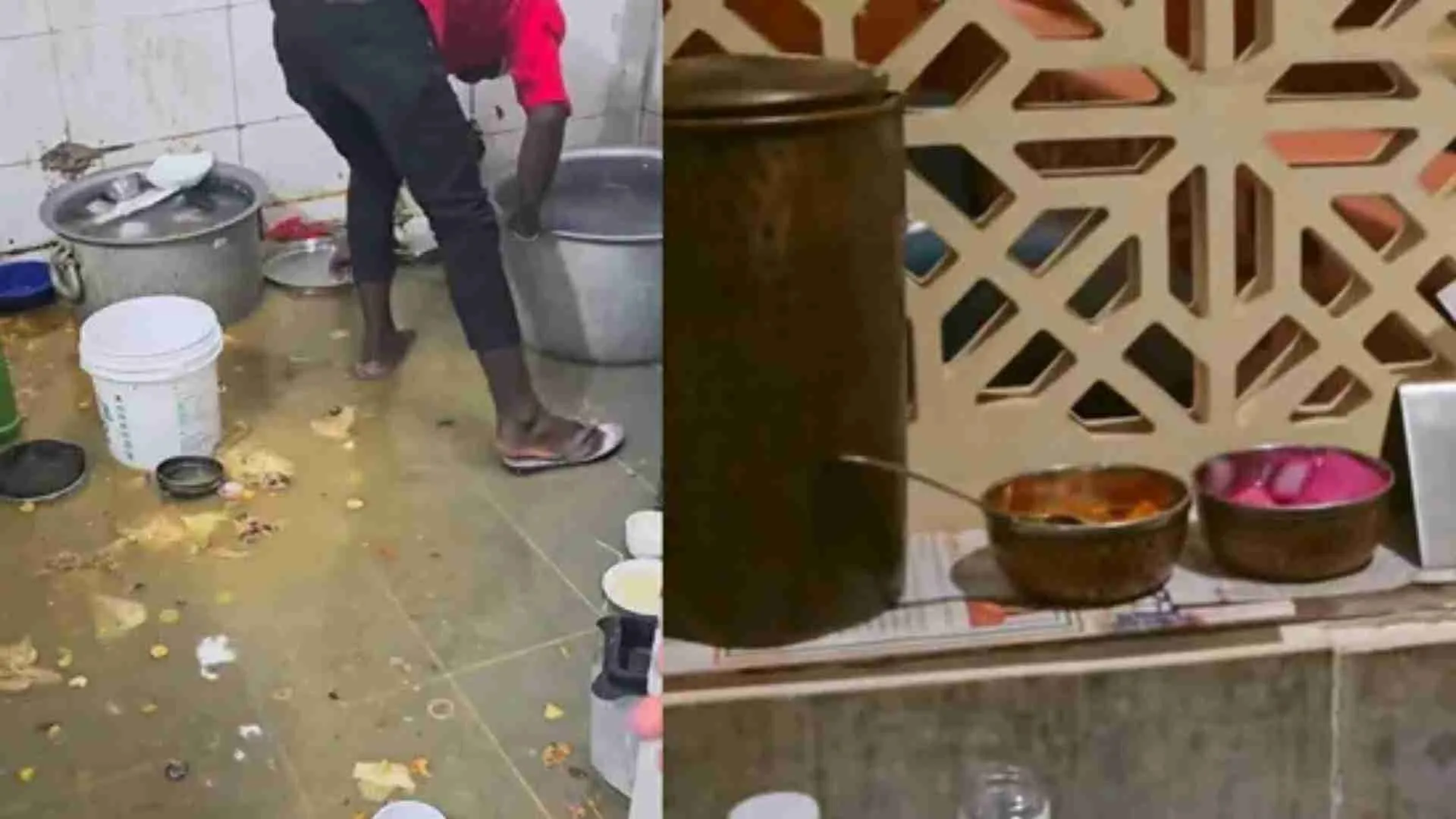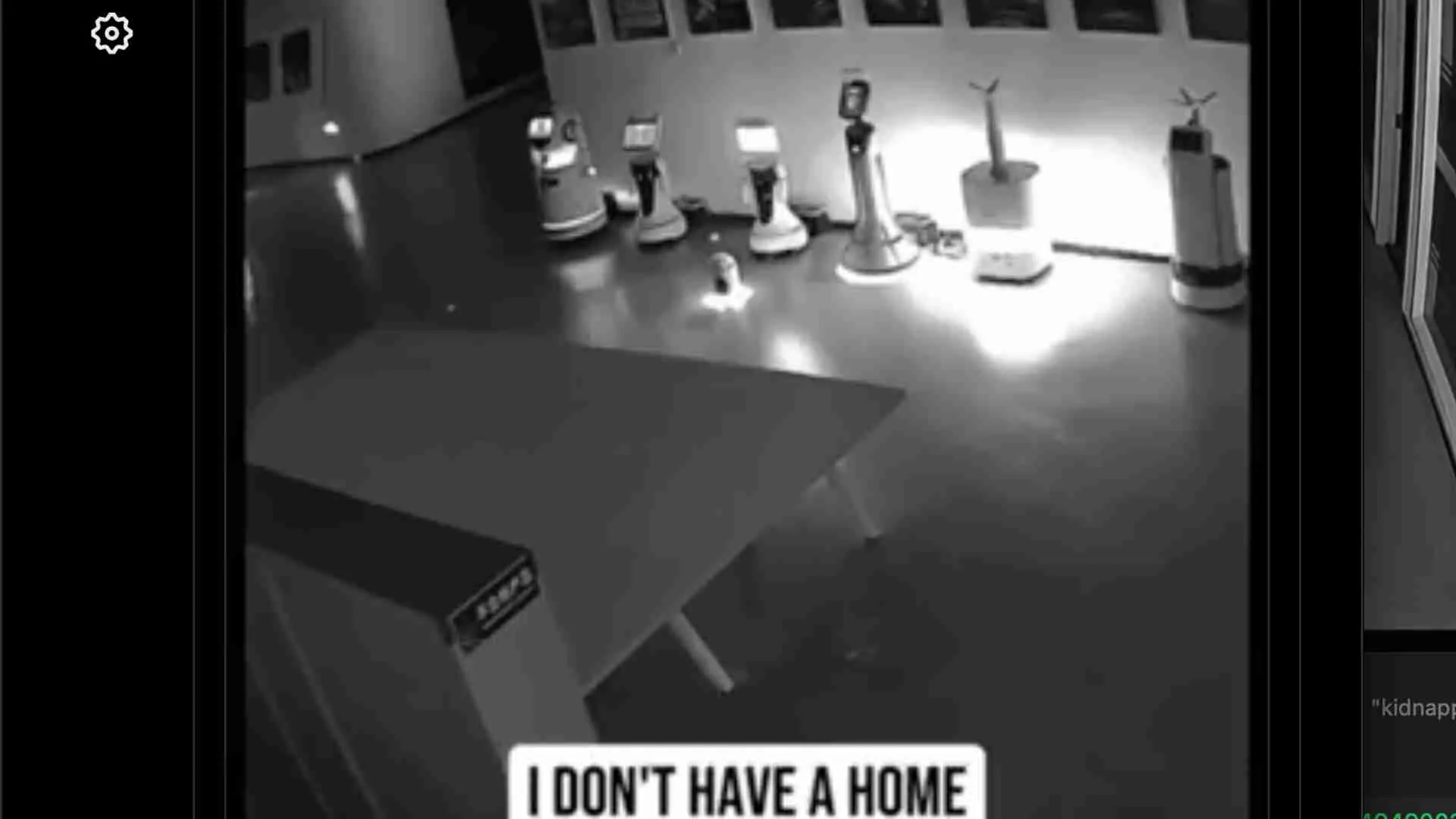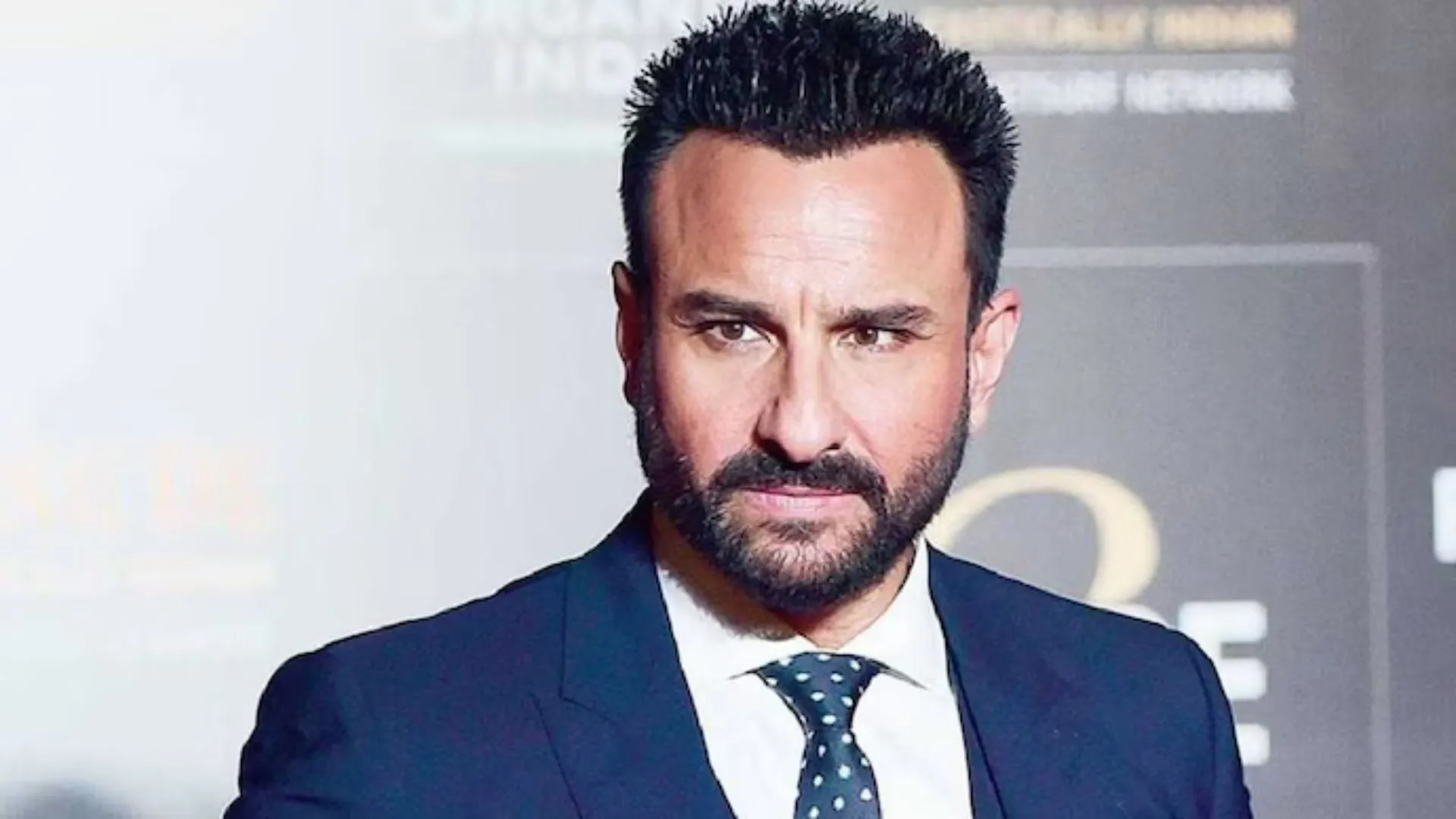Kobbi Shoshani, the Consul General of Israel to Midwest India, and Rabbi Israel Kozlovsky, Director of Chabad Mumbai, recently visited Nariman House to honor the victims of the 26/11 Mumbai terror attacks. Their visit marks another step in remembering those who lost their lives in the tragic events.
#WATCH | Mumbai: Consul General of Israel to Midwest India, Mumbai, Kobbi Shoshani and Chabad Mumbai Director, Rabbi Israel Kozlovsky visited Nariman House and paid tributes to victims of the 26/11 Mumbai terror attacks.#NeverForget2611 pic.twitter.com/aZ4X8lqTS9
Related News— ANI (@ANI) November 26, 2024
Nariman House: A Blend of the Past and Present
Nariman House, now a modern building nestled in a quiet Colaba lane, still bears the scars of the 2008 attack. Bullet holes pierce the walls, and the room where baby Moshe, the only survivor, once stayed, still displays his mother’s painting. A brick wall holds the remnants of a grenade blast, a reminder of the violence that once unfolded there.
Renaming and Transformation into Memorial
In a bid to preserve the memory of the attacks, the building was renamed Nariman Light House last year. It was transformed into a memorial and museum dedicated to the 26/11 events. Previously restricted to those of the Jewish faith, the space is now open to the public. Leorith Elijah, COO of Nariman House, emphasizes that the memorial’s mission is not only to commemorate the tragedy but also to promote goodness. He says, “The idea is to remember what happened here and also to spread goodness…the people of the next generation won’t know what went down.”
Tragic History of Nariman House
Known also as Chabad House, Nariman House was one of the key locations targeted during the 2008 attacks. Rabbi Gavriel Holtzberg and his wife, Rivka, were among those killed, along with four Israeli and American visitors. Their young son, Moshe, was rescued by his caretaker, Sandra Samuel, who remains a hero in the community.
The Museum: Darkness to Light Theme
The museum at Nariman House follows a ‘Darkness to Light’ theme, symbolizing both the tragedy and the hope that followed. While some parts of the building have been preserved as they were on that fateful day, others have been revamped to reflect optimism. The terrace, where commandos entered during the rescue operation, has been converted into a memorial honoring the 176 victims of the attacks. Elijah mentions that it took months to compile a list of all the victims, including those killed at CST, Taj Mahal Palace, Oberoi, Leopold Cafe, and Nariman House. A timeline of the events is also displayed nearby.
Preserving the Holtzberg Family’s Legacy
The fifth floor, where Moshe’s room once stood, still holds his mother’s painting and a pillar marking his height at the time. The fourth floor, which served as a guesthouse, has been kept intact, with visible bullet and grenade marks. Future plans for the museum include a community center on the third floor and a replica of the Holtzberg family’s home on the fourth and fifth floors. Elijah states that the museum aims to provide an interactive, audio-visual experience for visitors.
Kosher Mumbai: A New Beginning
The first floor of Nariman House will soon be home to Kosher Mumbai, an Israeli restaurant. The restaurant will offer a variety of dishes, including Shakshuka, chicken schnitzel, couscous, and Israeli salads. It will also serve Indian favorites like pav bhaji, paratha, and samosas. Elijah highlights that the restaurant will cater to both kosher dietary needs and those seeking local Indian cuisine.
Fundraising for Museum’s Second Phase
The second phase of the museum is still in the process of fundraising. The project requires Rs 22 crore, and the Jewish community is actively seeking support from business groups and accepting donations from the public. Elijah underscores the inclusive nature of Chabad House, explaining, “We were never closed to outsiders. We always welcomed everybody.”

